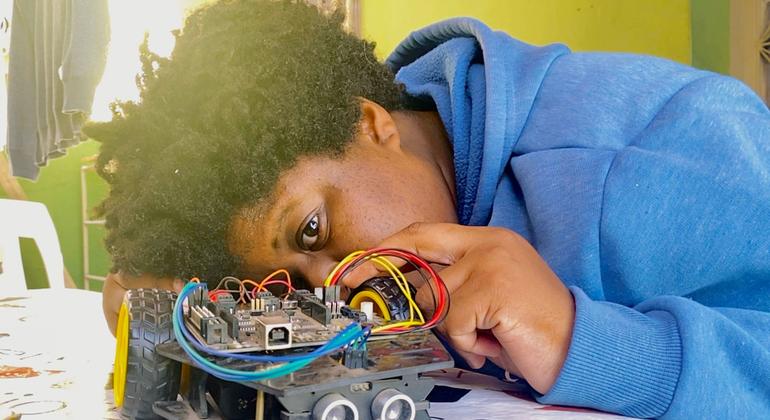The 2023 Commission on the Status of Women (CSW 67) concluded successfully on Saturday, calling for the full and equal participation of women and girls in the development of digital technologies. The priority theme was to advance progress towards levelling the digital playing field and addressing persistent issues that affect women and girls. The outcome document, officially the “Agreed Conclusions” of the 45 Member States, acknowledged the critical role of technology and innovation in achieving gender equality. The Agreed Conclusions serve as a “blueprint” for stakeholders to promote the full and equal participation and leadership of women and girls in the design, transformation, and integration of digital technologies and innovation processes that fulfill the human rights and needs of women and girls. The CSW also emphasized the need for inclusive and equitable quality education in STEM to ensure that all women and girls can thrive in a rapidly changing world. The Action Coalition on Technology and Innovation for Gender Equality, a civil society-focused group convened by UN Women, made significant contributions towards driving momentum and commitments to advance gender equality through technology and innovation.
The 2023 Commission on the Status of Women (CSW 67), which is the largest UN gathering focusing on gender equality, concluded successfully on Saturday. Member States called for the full and equal participation of women and girls in the development of digital technologies, marking the priority theme of this year’s two-week long event. Since 1946, the CSW has been advancing women’s rights, and this year’s theme addressed the ongoing discrimination, abuse, and misogyny women face in the virtual world. The aim was to level the digital playing field and address issues that affect women and girls, such as limited access to technology, disproportionate online violence, and gender bias in tech industries.
The outcome document of the Commission, officially known as the “Agreed Conclusions,” acknowledged the importance of technology and innovation in achieving gender equality. The document was described as a “blueprint for all stakeholders” to promote the full and equal participation and leadership of women and girls in the design, transformation, and integration of digital technologies and innovation processes that fulfill the human rights and needs of women and girls. The 45 Member States reached this agreement.
UN Women Executive Director, Sima Bahous, hailed the Agreed Conclusions as “game-changing” and bringing forward a vision of a more equal and connected world for women and girls in all their diversity. Bahous emphasized that translating the Agreed Conclusions into reality was the job of all stakeholders, including governments, the private sector, civil society, and youth. Bahous believes the ultimate success of the Agreed Conclusions lies beyond their finalization, and it depends on how stakeholders will collectively take them forward.
The Agreed Conclusions also reaffirmed the importance of women and girls’ full participation and leadership in science, technology, and innovation. Concerns were expressed about the limited progress in closing the gender gap in access to technologies, connectivity, digital literacy, and education. The Agreed Conclusions condemned the interrelation between offline and online violence, harassment, and discrimination against women and girls.
In conclusion, the CSW 67 was a remarkable event that emphasized the importance of promoting women and girls’ participation in tech and innovation processes. The Agreed Conclusions serve as a “blueprint” for stakeholders to advance progress towards achieving gender equality in the digital world. It’s now the responsibility of all stakeholders to translate the Agreed Conclusions into action.
The Commission on the Status of Women (CSW) called for increased public and private sector investments to bridge the gender digital divide and promote safe and gender-responsive technology and innovation. The Commission emphasized the need for inclusive and equitable quality education in science, technology, engineering, and mathematics, information and communications technology, and digital literacy to ensure that all women and girls can thrive in a rapidly changing world.
For the first time, CSW included an interactive youth session with young people, youth representatives of delegations, civil society, and United Nations organizations, engaging in dialogue and providing recommendations on how to ensure young women and girls are part of the digital transformation.
Civil society organizations, including members of the Action Coalition on Technology and Innovation for Gender Equality, have made significant contributions to the CSW. The Action Coalition has cemented alliances between governments, private sector, civil society, and the UN system, and driven momentum and commitments to advance gender equality through technology and innovation.
Don’t miss interesting posts on Famousbio









